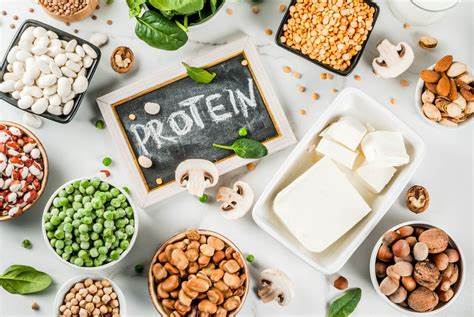Table of Contents
https://wellhealthorganic.com/how-protein-can-help-you-lose-weight In the journey towards achieving a healthier lifestyle and shedding excess weight, understanding the role of protein is paramount. Protein is not only essential for muscle repair and growth but also plays a crucial role in weight loss. At WellHealthOrganic.com, we delve into the science behind how protein can aid in your weight loss journey and provide practical insights to help you reach your goals.
The Importance of Protein in Weight Loss https://wellhealthorganic.com/how-protein-can-help-you-lose-weight

Protein serves as the building blocks of our bodies, playing a vital role in various physiological processes. When it comes to weight loss, incorporating an adequate amount of protein into your diet can have several benefits: https://wellhealthorganic.com/how-protein-can-help-you-lose-weight
Increased Satiety
https://wellhealthorganic.com/how-protein-can-help-you-lose-weight -rich foods have been shown to increase feelings of fullness and satiety, which can help reduce overall calorie intake. By feeling fuller for longer periods, you’re less likely to indulge in unhealthy snacks or overeat during meals. https://wellhealthorganic.com/how-protein-can-help-you-lose-weight
Boosted Metabolism

Consuming protein requires more energy for digestion compared to fats or carbohydrates. This thermogenic effect of protein can boost your metabolism, helping you burn more calories throughout the day, even at rest. https://wellhealthorganic.com/how-protein-can-help-you-lose-weight
Preserved Lean Muscle Mass
During weight loss, it’s essential to preserve lean muscle mass to maintain metabolic rate and ensure long-term success. Protein provides the necessary amino acids to support muscle repair and growth, preventing muscle loss during periods of calorie restriction.
How to Incorporate Protein into Your Diet

Now that we understand the benefits of protein for weight loss, let’s explore practical ways to incorporate more protein-rich foods into your daily meals:
Start Your Day with Protein
Kickstart your morning with a protein-packed breakfast. Opt for options like eggs, Greek yogurt, or protein smoothies to fuel your body and keep you satisfied until your next meal.
Choose Lean Protein Sources
When selecting protein sources, opt for lean options such as chicken breast, turkey, fish, tofu, and legumes. These choices are lower in saturated fat and calories, making them ideal for weight loss.
Snack Smartly
Instead of reaching for sugary snacks, opt for protein-rich snacks like nuts, seeds, cottage cheese, or protein bars. These snacks provide sustained energy and help curb cravings between meals.
Prioritize Balanced Meals
Ensure that each meal contains a balance of protein, healthy fats, and carbohydrates. This balanced approach helps stabilize blood sugar levels and promotes overall satiety.
FAQs about Protein and Weight Loss
Can I consume too much protein?
While protein is essential for weight loss, consuming excessively high amounts may not offer additional benefits and could potentially strain the kidneys in the long term.
Are protein supplements necessary for weight loss?
While whole food sources of protein are preferred, protein supplements can be convenient for individuals who struggle to meet their protein needs through diet alone. However, it’s essential to choose high-quality supplements and use them as a complement to a balanced diet.
How does protein compare to other macronutrients for weight loss?
While all macronutrients play a role in weight loss, protein is particularly beneficial due to its effects on satiety, metabolism, and muscle preservation.
Will eating more protein lead to weight gain?
In the context of a calorie-controlled diet, increasing protein intake is unlikely to cause weight gain. In fact, it can support weight loss by promoting fullness and preserving lean muscle mass.
Read Also: Unlocking The Power Of Proxium: A Comprehensive Guide 2024
